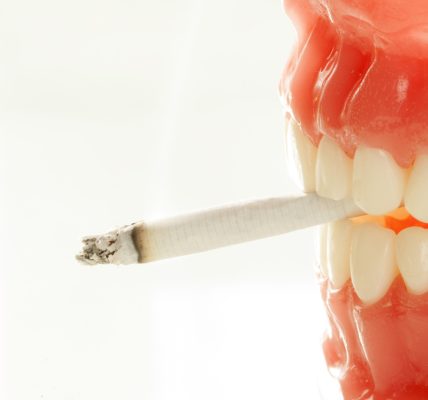The Role of Detox in Recovery
Detoxification, often referred to simply as detox, is the initial step in the journey towards recovery for individuals struggling with substance abuse. This process involves the body naturally eliminating toxins associated with drug use. Detox serves as a foundation for recovery, preparing the individual for further treatment and rehabilitation. At an Addiction Center, detox is integrated into a comprehensive treatment plan, ensuring that both the physical and psychological aspects of addiction are addressed. By removing harmful substances from the body, detox aids in breaking the physical dependency on drugs, which is crucial for recovery.
Physical and Psychological Aspects of Detox
The detoxification process is not just about cleansing the body of drugs; it also involves significant psychological adjustments. Physically, the body must adapt to the absence of substances it has become reliant upon. This can lead to withdrawal symptoms, which vary depending on the substance involved. Psychologically, detox can be challenging as individuals confront the mental and emotional aspects of their addiction. Support from medical professionals at an Addiction Center can help manage these symptoms and provide emotional support, making the detox process more manageable.
Common Misconceptions About Detox
There are several misconceptions about detox that can deter individuals from seeking help. One common myth is that detox alone is sufficient for recovery. In reality, detox is just the first step, and ongoing therapy and support are necessary for long-term sobriety. Another misconception is that detox is a quick and easy process. However, the duration and intensity of detox can vary greatly depending on the individual’s drug use history and physical health. Understanding these aspects can help set realistic expectations and encourage individuals to seek professional support at an Addiction Center.
The Importance of Medical Supervision During Detox
Risks of Detoxing Without Medical Help
Detoxing from drugs is a challenging process, and doing it without medical supervision can be risky. Withdrawal symptoms can range from uncomfortable to life-threatening. For instance, detoxing from alcohol or benzodiazepines can lead to seizures, while opioid withdrawal can cause severe dehydration and heart issues. Without medical help, these symptoms can spiral out of control, putting the individual at significant risk. The Addiction Rehab Group emphasizes that detox should always be conducted under professional supervision to ensure safety and comfort.
Benefits of Professional Guidance
Having medical professionals oversee the detox process offers numerous benefits. They can provide medications to ease withdrawal symptoms, monitor vital signs, and offer emotional support. This professional oversight can significantly reduce the discomfort associated with detox and decrease the risk of complications. Additionally, having a structured environment helps patients focus on recovery without the distractions or temptations they might face at home.
Choosing the Right Detox Facility
Selecting the appropriate detox facility is crucial for a successful recovery journey. Factors to consider include the type of substances being detoxed from, the severity of the addiction, and any co-occurring mental health issues. Facilities like The Addiction Rehab Group offer comprehensive assessments to tailor the detox process to each individual’s needs, ensuring that they receive the most effective care possible. The right facility provides not just medical support but also a nurturing environment that fosters healing and growth.
Initial Assessment and Personalized Detox Plans
Evaluating Medical and Substance Use History
When a person arrives at a detox facility, the first step is a comprehensive assessment. This involves a detailed evaluation of the individual’s medical background and substance use history. At places like Serenity at Summit, this process is thorough, aiming to understand the nuances of each person’s situation. The goal is to gather information about any previous medical conditions, current health status, and the substances used, including the duration and frequency of use. This evaluation is crucial as it sets the groundwork for a personalized detox plan.
Identifying Co-occurring Disorders
Identifying co-occurring disorders is another vital aspect of the initial assessment. Many individuals struggling with substance use also face mental health challenges. Recognizing these issues early on is essential for effective treatment. Facilities like Serenity at Summit place a strong emphasis on understanding these dual diagnoses. By doing so, they ensure that the detox plan addresses both the physical dependency and the psychological aspects, providing a more holistic approach to recovery.
Creating a Tailored Detox Plan
Once the assessment is complete, the medical team develops a personalized detox plan. This plan is tailored to the individual’s specific needs and circumstances, ensuring that they receive the appropriate level of care. The plan outlines the approach to managing withdrawal symptoms, which might include medication and other therapeutic interventions. Facilities like Serenity at Summit focus on creating an environment where individuals feel supported and safe, making the detox process as comfortable as possible. This tailored approach not only addresses the immediate challenges of detox but also sets the stage for a successful transition into long-term recovery.
Managing Withdrawal Symptoms Effectively
Common Withdrawal Symptoms to Expect
Withdrawal can be a tough road, and it varies depending on what substance a person is coming off of. People might experience symptoms like sweating, shaking, nausea, and anxiety. In more severe cases, there could be seizures or hallucinations. Knowing what to expect can help prepare mentally and physically for the journey ahead. Withdrawal isn’t just about the physical symptoms; it can hit a person emotionally too. Some might feel waves of anxiety or depression, making it important to have a support system in place. Understanding protracted withdrawal symptoms can also be crucial, as they can linger and impact recovery.
Medical Interventions for Symptom Relief
Medical help can make a big difference when dealing with withdrawal symptoms. Healthcare providers can offer medications that ease symptoms and reduce the risk of complications. This support is especially important for substances that have severe withdrawal effects, like alcohol or opioids. Continuous medical monitoring helps ensure safety and comfort, and it provides a safety net for those going through this challenging time. It’s not just about managing the immediate symptoms but also setting up a foundation for ongoing recovery.
Coping Strategies for Emotional Challenges
Detox isn’t just a physical process; it’s an emotional one too. People often face mood swings, anxiety, and even depression during this time. Having strategies in place to tackle these feelings is key. Journaling can help in processing emotions, while mindfulness practices like meditation or deep breathing might offer some relief. Building resilience is part of the journey, and having a plan to cope with emotional turmoil can make the path a bit smoother. Support from friends, family, or professionals can provide much-needed encouragement and strength.
The Role of Nutrition and Exercise in Detox
In the journey of detoxification, nutrition and exercise hold pivotal roles in supporting the body’s recovery. Nutrition provides the essential building blocks that the body needs to repair itself after prolonged substance abuse. Consuming a balanced diet rich in vitamins, minerals, and antioxidants can significantly aid in flushing out toxins and restoring physical health. Foods like leafy greens, fruits, and lean proteins are particularly beneficial. They not only support the liver, which plays a crucial role in detoxification, but also help in stabilizing blood sugar levels, which can be erratic during detox.
Exercise, on the other hand, is a powerful tool for both physical and mental recovery. Regular physical activity can help alleviate withdrawal symptoms and reduce stress, anxiety, and depression, which are common during detox. Exercise stimulates the production of endorphins, often referred to as the body’s natural painkillers, which can improve mood and overall well-being. Incorporating activities like walking, yoga, or swimming can be beneficial.
At Sandstone Addiction Care, the integration of nutrition and exercise into detox programs is emphasized. Their approach ensures that individuals receive a comprehensive treatment plan that addresses both the physical and psychological aspects of addiction recovery. The focus is on creating sustainable lifestyle changes that support long-term recovery.
Essential Nutrients for Detoxification
The body requires a range of nutrients to effectively detoxify. Vitamins such as B-complex, C, and E, along with minerals like magnesium and zinc, are vital. These nutrients support metabolic processes and help in repairing cellular damage caused by substance abuse. Consuming a diet rich in whole foods, such as vegetables, fruits, nuts, and seeds, ensures adequate intake of these essential nutrients.
Exercise as a Supportive Tool
Exercise plays a critical role in managing stress and improving mental health during detox. It helps in releasing tension, boosting energy levels, and enhancing sleep quality. Regular physical activity can also improve cardiovascular health, which is often compromised by substance abuse. Simple activities like brisk walking or stretching can be incorporated into daily routines to support the detox process.
Hydration and Its Importance
Staying hydrated is crucial during detoxification. Water aids in the elimination of toxins and supports overall bodily functions. Dehydration can exacerbate withdrawal symptoms, making it essential to maintain adequate fluid intake. Herbal teas and electrolyte-rich drinks can also be beneficial in maintaining hydration levels. At Sandstone Addiction Care, hydration is considered a key component of the detox process, ensuring that individuals remain physically stable and comfortable.
Exploring Different Detox Methods
Cold Turkey vs. Tapering
When it comes to detoxing from drugs, one of the first decisions to make is whether to quit “cold turkey” or to gradually reduce the drug use, known as tapering. Going cold turkey means stopping all at once, which can be a shock to the system and might lead to intense withdrawal symptoms. It’s often seen as a quicker way to detox but can be quite harsh on the body. On the other hand, tapering involves slowly reducing the drug intake, which can help ease withdrawal symptoms and make the process more manageable. However, it requires careful planning and discipline. Both methods have their pros and cons, and the choice often depends on the individual’s health, the type of substance, and personal preferences.
Medical Detox vs. Natural Detox
Medical detox involves the use of medications and professional supervision to help manage withdrawal symptoms. It’s often recommended for those with severe addictions or when the withdrawal symptoms pose a risk to health. Medical Detox can provide a structured and safe environment, reducing the discomfort and dangers associated with withdrawal. On the flip side, natural detox focuses on using the body’s natural processes to eliminate toxins, often supported by a healthy diet and supplements. This method appeals to those who prefer a more holistic approach. While natural detox might seem appealing, it’s not always suitable for everyone, especially in cases of severe addiction.
Inpatient vs. Outpatient Detox Options
Choosing between inpatient and outpatient detox is another critical decision. Inpatient detox means staying at a facility where medical professionals can provide round-the-clock care and support. It’s often recommended for those with severe addictions or for substances that cause dangerous withdrawal symptoms. Inpatient care offers a controlled environment, which can be crucial for maintaining sobriety during the initial stages of detox. Outpatient detox, however, allows individuals to continue living at home while attending scheduled treatment sessions. This option offers more flexibility and is often suitable for those with milder addictions or strong support systems at home. The choice between inpatient and outpatient detox depends largely on the individual’s personal circumstances and the severity of their addiction.
Preparing for a Successful Detox Journey
Consulting with Healthcare Professionals
Before embarking on a detox journey, engaging with healthcare professionals is fundamental. They provide insights into the complexities of detoxification, ensuring you have a plan tailored to your specific needs. Evoke Wellness offers comprehensive assessments to guide this process. By consulting experts, you gain access to medical interventions that can alleviate withdrawal symptoms, making the detox journey safer and more manageable.
Setting Up a Supportive Environment
Creating a nurturing environment is crucial for a successful detox. This involves surrounding yourself with individuals who understand the challenges of detoxification. Whether it’s family, friends, or a dedicated support group, having a robust network can significantly bolster your resolve. Additionally, consider organizing your living space to minimize stressors, ensuring it’s conducive to relaxation and recovery.
Mental Preparation and Mindfulness
Detoxification is as much a mental journey as it is physical. Preparing mentally involves acknowledging the emotional hurdles that may arise. Mindfulness practices, such as meditation and breathing exercises, can be invaluable tools. They help in maintaining focus and reducing anxiety, fostering a sense of calm and resilience throughout the detox process. At Evoke Wellness, individuals are encouraged to adopt these practices as part of their holistic approach to recovery.
Post-Detox: Planning for Long-term Recovery
Importance of Continued Therapy
After completing detox, the journey towards long-term recovery truly begins. It is essential to understand that detox only addresses the physical aspect of addiction. Continued therapy is crucial for tackling the psychological and emotional challenges that accompany recovery. Therapy provides a safe space to explore underlying issues that may have contributed to substance use. Cognitive-behavioral therapy, group counseling, and individual sessions are common approaches that help individuals build coping strategies and resilience. Harmony Ridge offers a range of therapeutic services designed to support individuals in their recovery journey.
Joining Support Groups
Support groups play a vital role in maintaining sobriety after detox. Sharing experiences with others who have faced similar challenges fosters a sense of community and belonging. Groups like Alcoholics Anonymous or Narcotics Anonymous provide a platform for individuals to gain insight and encouragement from peers. These gatherings help reinforce the commitment to sobriety and offer a network of support that can be leaned on in times of need. Harmony Ridge emphasizes the importance of integrating support groups into the recovery process to enhance long-term success.
Developing a Relapse Prevention Plan
Creating a solid relapse prevention plan is a proactive step in safeguarding one’s recovery. This plan typically includes identifying triggers, developing healthy coping mechanisms, and establishing a routine that supports sobriety. It’s important to recognize that relapse can be a part of the recovery journey, but having a plan in place reduces its likelihood. Regularly revisiting and adjusting the plan ensures it remains relevant and effective as new challenges arise. Harmony Ridge encourages individuals to work closely with their therapists to craft a personalized relapse prevention strategy that aligns with their unique needs.
Understanding the Risks and Challenges of At-Home Detox
Potential Dangers of Self-Detox
Deciding to detox from drugs at home might seem like a convenient option, especially if one wants to avoid the clinical setting of a detox facility. However, this approach carries significant risks. Without medical supervision, withdrawal symptoms can escalate quickly, leading to severe health complications. For instance, seizures, dehydration, and severe anxiety are not uncommon and can be life-threatening. Many individuals underestimate the intensity of withdrawal symptoms, thinking they can manage them alone. Unfortunately, without professional help, the risk of relapse increases significantly. This cycle of detoxing and relapsing can become a dangerous pattern, leading to further health deterioration.
When to Seek Professional Help
Recognizing when to seek professional assistance is crucial in the detoxification process. If one experiences intense cravings, severe withdrawal symptoms, or has a history of relapse, professional help should be sought immediately. Medical detox programs offer structured environments where individuals receive necessary medical care and emotional support. These programs are equipped to handle complications that might arise during detox, ensuring a safer and more comfortable experience. For those unsure about their ability to detox safely at home, consulting with a healthcare provider can provide clarity and guidance.
Creating a Safe Home Detox Environment
For those determined to detox at home, creating a safe and supportive environment is essential. This includes having a trusted friend or family member present to monitor progress and provide support. The environment should be calm and free from stressors that might trigger cravings or anxiety. Stocking up on essentials like water, nutritious foods, and comfort items can make the process more manageable. Additionally, having a plan for post-detox support, such as therapy or support groups, can help maintain sobriety and prevent relapse. While at-home detox is challenging, with the right precautions and support, it can be done safely for those with milder dependencies.
The Psychological Impact of Detoxification
Addressing Mental Health During Detox
Detoxification isn’t just about clearing the body of substances; it’s a profound emotional journey as well. As individuals purge toxins, they often face a whirlwind of emotions. Anxiety, depression, and mood swings can surface, making the process mentally taxing. It’s essential to acknowledge that these feelings are part of the healing process. Addressing mental health during detox is crucial for a successful recovery. Many find that therapy and counseling provide a safe space to explore these emotions, offering strategies to cope with the mental strain of detox.
Therapeutic Approaches to Support Mental Well-being
Incorporating therapeutic approaches can significantly aid in managing the psychological challenges of detox. Cognitive Behavioral Therapy (CBT) is often employed to help individuals reframe negative thought patterns that may arise. Group therapy provides a sense of community, allowing individuals to share experiences and support each other. These therapeutic methods not only address the immediate emotional challenges but also equip individuals with tools for long-term mental well-being.
Building Resilience and Coping Skills
Building resilience is a key component of overcoming the psychological hurdles of detox. Developing coping skills is vital for managing stress and emotional upheaval. Techniques such as mindfulness and meditation can be incredibly beneficial. These practices encourage individuals to stay present and manage anxiety effectively. With these skills in place, individuals are better prepared to tackle the emotional challenges that may arise during and after detoxification. Additionally, overcoming addiction involves significant emotional challenges alongside physical detoxification, underscoring the importance of a holistic approach to recovery.
The Role of Family and Community Support
Involving Family in the Detox Process
Family plays a pivotal role in the journey of detoxification and recovery. They provide emotional support, encouragement, and a sense of belonging that can be crucial during challenging times. When a person decides to undergo detox, involving family members can help create a supportive environment that fosters communication and understanding. Open discussions about the detox process can alleviate fears and misconceptions, making the journey less daunting for everyone involved. Facilities like Blackbear Rehab emphasize the importance of family involvement, offering family therapy sessions and education programs to help loved ones understand the complexities of addiction and recovery.
Community Resources and Support Networks
Beyond family, community resources and support networks serve as vital pillars in the detoxification process. These networks provide individuals with a sense of community and shared experience, reducing feelings of isolation. Support groups, such as Alcoholics Anonymous or Narcotics Anonymous, offer a platform where individuals can share their experiences and learn from others who have faced similar challenges. Community centers and rehab facilities, including Blackbear Rehab, often host meetings and events aimed at fostering a sense of belonging and mutual support.
Building a Strong Support System
Creating a robust support system is essential for anyone undergoing detox. This system should include family, friends, healthcare providers, and community resources. A strong support system offers accountability, motivation, and guidance, helping individuals stay on track with their recovery goals. It’s important for those in recovery to actively engage with their support network, attending meetings, participating in therapy sessions, and maintaining open lines of communication. Blackbear Rehab, for instance, encourages patients to build and maintain these connections, understanding that a well-rounded support system can significantly enhance the chances of a successful detox and long-term recovery.
Legal and Ethical Considerations in Drug Detox
Patient Rights and Confidentiality
In the realm of drug detoxification, patient rights and confidentiality stand as pillars of ethical practice. Patients undergoing detox have the right to privacy, ensuring their medical and personal information remains protected. This confidentiality is crucial, as it allows individuals to seek help without fear of stigma or discrimination. Medical professionals must adhere to strict guidelines to safeguard this information, fostering an environment of trust and safety.
Ethical Practices in Detox Programs
Ethical practices in detox programs are essential to ensure that patients receive fair and respectful treatment. These practices include obtaining informed consent, where patients are fully aware of the procedures and potential risks involved in their detox plan. Additionally, maintaining a non-judgmental approach is vital, as it encourages individuals to engage openly in their recovery process. Programs must prioritize the well-being of patients, offering support that respects their dignity and autonomy.
Navigating Legal Issues Related to Substance Use
Legal issues often intersect with detoxification, especially for individuals mandated to undergo treatment. Laws such as Ricky’s Law, which allows for involuntary commitment under specific circumstances, highlight the complex legal landscape surrounding detox. Navigating these legalities requires a careful balance between upholding the law and respecting individual rights. Legal professionals and healthcare providers must work collaboratively to ensure that the legal aspects of detox do not overshadow the primary goal of recovery.










